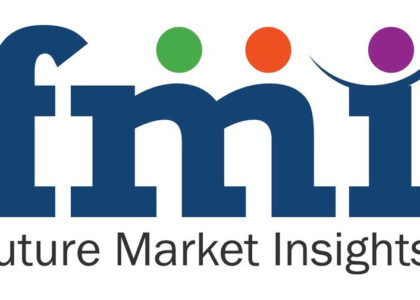
The global DNA-based skincare market was predicted to be US$ 4,733.8 million in 2022 and 4,907.7 million in 2023. According to Future Market Insights’ estimates, the focused ultrasound system market is expected to grow at a compound annual growth rate (CAGR) of 5.3% from 2023 to 2033, with a projected market value of around US$ 8,192.3 million by 2033.
DNA skincare products employ an individual’s genetic makeup to prescribe goods and help identify any negative impacts of routine that need to be countered.
Empower Strategies With Your Report Sample:
https://www.futuremarketinsights.com/reports/sample/rep-gb-8702
The market for DNA-based skin care products is expected to rise in the future due to an increase in demand for wellness and health-related products. Maintaining a healthy lifestyle enhances one’s look and general wellbeing, and one’s skin condition is a good sign of their general health.
Key Takeaways from the Market Study
- Anticipated size of the DNA-based skincare market in 2017 was US$ 4.1 billion.
- Global DNA-based skincare market grew at a CAGR of 2.5% between 2017 and 2022.
- North America is anticipated to generate the largest DNA-based skincare market share of 37.6% in the upcoming years.
- Demand for natural and organic products in Europe has been fueled by the increase in consumer awareness about the risks of adopting skincare products having synthetic chemicals holding a market share of 25.5%.
- Under product type, creams dominate the market with a share of 56.2%.
- Under distribution channel, the offline distribution channel has a major position in the market with a market share of 68.8%.
“Desire to slow down the signs of aging among millennials is one of the major drivers of the DNA-based skincare market”, Lead Analyst a Future Market Insights analyst.
Key Developments in the DNA-Based Skin Care Market
- Personalized Skincare: DNA-based skincare has ushered in a new era of personalization. Companies are using genetic information to create customized skincare products tailored to an individual’s unique genetic makeup. This trend is gaining popularity as consumers seek more effective and personalized medicine solutions.
- Advanced DNA Testing: Advances in DNA testing technology have made it easier and more affordable for consumers to access their genetic information. This has fueled the growth of DNA-based skincare, as people can now readily obtain insights into their skin’s specific needs.
- Targeted Treatment: DNA analysis allows skincare companies to identify specific skin issues and recommend targeted treatments. This precision approach is replacing the one-size-fits-all model of skincare, leading to more effective results.
- Rise in DTC Brands: Direct-to-consumer (DTC) DNA-based skincare brands have emerged, offering consumers the convenience of ordering personalized products online. These brands often provide easy-to-use DNA testing kits, making the process accessible to a broader audience.
Learn About Our Methodology Structure:
https://www.futuremarketinsights.com/request-report-methodology/rep-gb-8702
Market Competition
The global market is highly fragmented with the presence of various international and domestic companies. Many companies are gradually shifting towards artificial intelligence to provide individualized suggestions and track daily skin changes to react to the shift in lifestyles. Meanwhile, some of the other key players are striving to develop DNA testing kits for customers to enable them to make informed decisions associated with their genetic composition.
- Gi Picco’s, a manufacturer of cosmetic powders in Europe, was purchased by MS Beautilab. The acquisition of Italy’s Gi Picco’s Cosmetics by the Swiss-French subcontractor has resulted in the improvement of its product line and has completed its historical by marking a significant milestone in the company’s expansion strategy.
- Milk Makeup and Obagi Cosmeceuticals LLC were acquired by Waldencast Acquisition Corp.
Key Companies Profiled:
- ALLÉL
- IMAGENE LABS
- Genetic Beauty
- DNA Skin Institute
- EpigenCare
- ANAKE
- Caligenix
- LifeNome
- SKINSHIFT
- SkinDNA
Key Segmentations in the DNA-Based Skin Care Industry
By Product Type:
- Serums
- Creams
- Others
By Distribution Channel:
- Offline
- Online
By End Use:
- Home User
- Wellness Clinics
- Salons
By Region:
- North America
- Latin America
- Western Europe
- Eastern Europe
- South Asia & Pacific
- East Asia
- Middle East & Africa
In-Depth Market Overview: Purchase Now to Access:
https://www.futuremarketinsights.com/checkout/8702
About Future Market Insights (FMI)
Future Market Insights, Inc. (ESOMAR certified, recipient of the Stevie Award, and a member of the Greater New York Chamber of Commerce) offers profound insights into the driving factors that are boosting demand in the market. FMI stands as the leading global provider of market intelligence, advisory services, consulting, and events for the Packaging, Food and Beverage, Consumer Technology, Healthcare, Industrial, and Chemicals markets. With a vast team of over 400 analysts worldwide, FMI provides global, regional, and local expertise on diverse domains and industry trends across more than 110 countries.
Contact Us:
Future Market Insights Inc.
Christiana Corporate, 200 Continental Drive,
Suite 401, Newark, Delaware – 19713, USA
T: +1-845-579-5705
For Sales Enquiries: sales@futuremarketinsights.com
Website: https://www.futuremarketinsights.com
LinkedIn| Twitter| Blogs | YouTube

